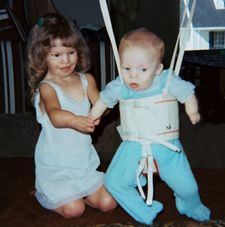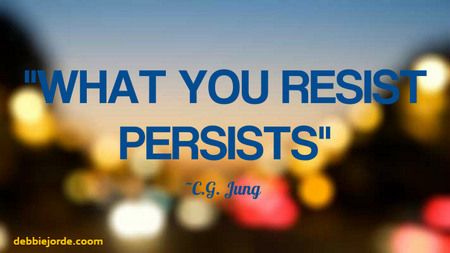
Sometimes, do you feel like you’re the only one who has difficult challenges? I certainly have. My goal is to help you recognize that you are not alone, and together we can overcome challenges.
You’ve probably felt like you can’t talk to anyone about a problem and because of this, you feel alone. I used to feel like this. However, experience has taught me I am not alone when I share my challenges with others.
Remember, you’re not alone!
You also help other people when you share your challenges. Often, you aren’t aware of the positive difference you’re making in another person’s life by opening up about yours when sharing both positive and challenging experiences.
Sometimes it’s not easy to look for help. However, support is as close as a click, a text, or a phone call away.
You are Not Alone, and Together We Can Overcome Challenges
Sharing Stories, Lessons, and Insights
Thirty years ago when I was feeling alone and in despair, I thought, “Maybe if I attend a personal growth seminar I will feel better.”
At an introductory meeting for the event, I took the opportunity to participate in an exercise, one on one, with a person who had already completed the seminar. His name was Mark.
The leader asked us to sit knees touching knees, look into each other’s eyes, and take turns answering his questions privately to each other.
 The first question was, “What are you proud of that you’re doing now?
The first question was, “What are you proud of that you’re doing now?
Mark answered first. Then I said, “I’m proud that I am raising my two children who have Miller syndrome, lung disease, and other disabilities by myself.”
The second question was, “What are you doing now that you haven’t told anybody?
It was my turn to answer first. At that time, I was suffering from bulimia, and I thought, “I’m not telling anyone this.” So I let the time run out without answering.
Next, it was Mark’s turn. He said, “I’m an artist.” Immediately, I thought “Why did his mind go to something positive about himself and mine went to something negative?”
I had to know! So I attended the seminar.
There were 200 people in the group. We were sharing our thoughts, challenges, and lives with each other in different settings; one on one, in small groups and with the entire group.
Hearing about other people’s challenges and telling them about mine felt strange at first, but then something shifted within me and I no longer felt alone. This transformation seemed like a miracle!
Sharing Stories Creates Support
You support others as well as yourself through hardships by sharing personal stories about challenges faced, lessons learned, and insights gained.
Many years ago, I was suffering from bulimia. I attended an Overeaters Anonymous, OA, meeting for anorexics and bulimics. A woman who was a visiting the meeting, and who was also a patient from a nearby hospital, was sharing her struggles with anorexia.
She was crying, “I want to see my kids grow up. I don’t want to die.” She felt alone and scared, and by reaching out to others and sharing her story, she was getting help. She was also helping us.
Attending a support group with people who were struggling with the same challenge as I was showed me, once again, that we are not alone.
You can learn steps to take to rise above adversity.
Overcoming Challenges Can Be Difficult, But Success is Possible
You do what you can to get through your hardships. You make some of your choices consciously. However, other decisions you make are unconscious, automatic reactions to your situations.
Many choices you make help you feel better and are healthy, but others can hurt you.
Continuing to make the same choices repeatedly seems to help you get through some of the tough situations you face. However, you want to do more than just “get through” the obstacles. You want to overcome them!
Sharing your difficulties and how you overcome them helps other people feel like they’re not the only ones with problems. You share what’s happening in your life in many ways; one on one, in groups, and nowadays through social media and online forums.
 Writing and speaking publically are two of my favorite platforms. I wrote the book, Eight Fingers and Eight Toes: Accepting Life’s Challenges. I share my personal stories of experiencing, accepting and overcoming challenges I face while raising two children, Heather and Logan, with multiple, visible disabilities. Some of them are caused by Miller syndrome, lung disease, and autism.
Writing and speaking publically are two of my favorite platforms. I wrote the book, Eight Fingers and Eight Toes: Accepting Life’s Challenges. I share my personal stories of experiencing, accepting and overcoming challenges I face while raising two children, Heather and Logan, with multiple, visible disabilities. Some of them are caused by Miller syndrome, lung disease, and autism.
I also share my personal stories about overcoming hardships created by divorce, bulimia, and MS.
Along with these stories, I share the lessons I’ve learned, tools that work, and steps I’ve taken that have helped me find more happiness while overcoming these challenges.
8 Steps Create Happiness While Overcoming Challenges
1. Ask for Help
 When my kid’s father deserted us, he left me alone to raise two young children with multiple disabilities. I cried for weeks. Sometimes all I could do was curl into a ball on the floor and sob. I felt so alone and scared.
When my kid’s father deserted us, he left me alone to raise two young children with multiple disabilities. I cried for weeks. Sometimes all I could do was curl into a ball on the floor and sob. I felt so alone and scared.
Whenever the sadness overwhelmed me, I found that if I ate tasty food, I felt better, even if only for a few minutes.
At first, eating for comfort got me through difficult moments. But after a while, this habit turned into an addiction that caused me to develop bulimia (binging and purging.)
In one desperate moment, I found myself on the bathroom floor exhausted and looking at the toilet seat covered in blood and vomit. I knew I needed help. I called the eating disorder clinic at the hospital and asked for help.
When you ask for help, you discover you are not alone.
Some people think getting help is a show of weakness. I’ve learned it takes strength to ask for help.
You are so much stronger than you think you are!

Getting help and being able to overcome bulimia was another lesson I learned about the value of sharing our challenges and the lessons we’ve learned with each other so we can all overcome our challenges more easily.
Michele L. Sullivan gives a powerful Ted Talk titled, “Asking for Help is a Strength, Not a Weakness.” In her talk about perspective, Sullivan shares stories full of wit and wisdom and reminds us that we’re all part of each other’s support systems.
We all go through challenges — some you can see, most you can’t. The only shoes you can walk in are your own. With compassion, courage, and understanding, we can walk together, side by side. ~Michele L. Sullivan
2. Set Personal Boundaries
In addition to the unconscious, unhealthy habits you use to get through challenges, too often you put other people first. Instead of caring for yourself, you help others with their hardships.
Helping others is wonderful as long as you don’t neglect your own needs, avoid your challenges, or take on their pain and problems as your own.
When you do this, you often feel as bad as the person you’re helping. You don’t realize that you’re acting as if the only way you can feel happiness is to solve their problems, so they feel better, first. Over time, putting yourself last prevents you from helping both of you.
Learning to set personal boundaries is critical in taking care of yourself.
Your boundaries help you support who you are, what you think, and how you feel, from the thoughts and feelings of family, friends, and others.
Making a conscious choice to look inside yourself to find out what you need to be happier and healthier, learn where your limits are, and to set your boundaries will help you to overcome your challenges and create a more fulfilling life.
3. Make Conscious Choices
You’re usually upset when your loved ones or friends are unhappy and facing hard times. You want to help them feel better. Sometimes, you think you’re helping someone by giving them advice. You often do this unconsciously when all they want or need is for you to listen.
For years, I thought I was helping my son Logan when he was depressed by giving him constant advice. His pain became my pain. Feeling desperate to stop his suffering, I was blind to the reality that he just wanted someone to listen. Our relationship spiraled downward because he didn’t want advice but wasn’t able to tell me this.
Finally, I noticed that I was often, feeling stressed, overworked, or sad when I met with him. Feeling like this leads to acting unconsciously. Instead of caring for myself, I put helping Logan first, which didn’t help him at all.
Unconcious habits include ignoring your feelings, emotions, and desires. When you say yes when you don’t want to do something, instead of saying no, you end up having less self-trust and feeling deprived, angry, and unhappy. You end up unconscious.
You become more conscious when you ask for help, listen to your body, set personal boundaries, and make conscious choices to make yourself important first. Remember, by taking care of yourself you are more able to help others.
4. Accepting Challenges Creates Better Health
You’ve probably heard the saying “what you resist, persists.” Feeling constant resistance to your problems causes unhappiness and disease.
Do you recognize symptoms of resistance? You know when you have that knot in your throat, those tense shoulders, or that fear running through your whole body? These symptoms are resistance.
Remember the last time you felt tired, and instead of stopping for a moment to rest, closing your eyes, or acknowledging how you felt, you forced yourself to keep going, sometimes even working harder? Remember the negative mood you felt coursing through your whole body? These symptoms are also resistance.

Do you notice as long as you are resisting the feelings you are having or the situation that is occurring these symptoms of resistance just persist or get worse?
You are not alone in feeling resistance to problems. We all resist hardships.
Unconscious about the resistance I was feeling during my challenges, my health was severely affected. After years of symptoms, in 2009 doctors diagnosed me with having MS. Although doctors don’t know the cause of MS, stress exacerbates the symptoms.
Since then, making more conscious decisions to take better care of myself by making my needs important has created a positive impact on my health. Don’t let stress and other forms of resistance cause disease for you. Look after yourself now.
5. Listen to Your Body
As you learn to listen to your body, you will start making better choices to value yourself. One such choice is having boundaries. Creating boundaries will help you feel stronger and safer and to develop self-trust. When you trust yourself, you no longer feel alone. You will know you can depend on yourself to take care of you.
Sometimes the choice isn’t easy, in fact, it’s very hard. You only have so much time and limited energy in a day. Sometimes you have to choose between helping a sick mom, a friend who’s in the hospital, or taking care of your own well-being.
If your tank is empty in that instance, it’s best for your health to put you in the same class of importance as you’re putting your mother and your friend.
Using self-honesty is the most important step at that moment.
What do I need physically and emotionally the most right now? Sometimes your answer is to do something for yourself in that moment, instead of helping someone else.
Self-Care is Important
Having MS taught me the importance of self-care. Once I learned that the chronic fatigue and other discomforts I was feeling were symptoms of MS and that they intensified when I felt the stress of resistance, I knew I had to take charge of my health.
I began to listen to my body and take care of my needs by setting firmer boundaries. Now, I say no when my body and emotional well-being is telling me to say no, instead of saying yes.
Caring for myself includes doing activities I love and that also reduces stress.
 As a result of setting your boundaries, sometimes people will be unhappy with your choices. Taking better care of yourself means letting people be mad at you. Even though that’s uncomfortable at first, it gets easier.
As a result of setting your boundaries, sometimes people will be unhappy with your choices. Taking better care of yourself means letting people be mad at you. Even though that’s uncomfortable at first, it gets easier.
Caring for your needs first isn’t easy, but as you feel better emotionally and physically, it becomes easier. We are creatures of habit. The more you practice a habit, the easier time you have implementing it on a regular basis.
Always keep in mind that you are the one who feels the physical and emotional impacts when you don’t care for yourself first. When someone is unhappy with your choice, those feelings pass. When you get run down from always putting other’s first, your health suffers and you feel discomfort longer, sometimes even for the rest of your life.
Accept your feelings and show yourself love by putting yourself first.
Making yourself important creates better health, more happiness, and more consciousness to make better choices as you overcome your challenges.
6. Build Healthy Habits
An important part of your wellness is making conscious decisions to build better habits.
Listening to your body and your emotions are important steps to making conscious choices.
You create habits in every category of your life: relationships with yourself and others, work and nature, your body and how and what you do every day.
When you think about your habits, you probably think about your health, your weight, and your exercise, or lack of it, and most likely, you understand that eating healthier and getting regular exercise is a huge part of building healthy habits.
7. Get Regular Exercise, and Eat Healthily
Choosing to exercise regularly and eat healthier helps you feel better physically, emotionally, and spiritually. Developing healthy habits in both of these areas help build good self-esteem, relieve stress, and create more energy to face challenges.

Finding exercises that you enjoy doing makes you more likely to follow through in building a regular habit of exercising. Your personality plays a big part in choosing how, where, and when you want to exercise.
You are not alone in your struggles to exercise and eat healthy. Life gets busy, and there doesn’t seem to be enough time to exercise or to shop and prepare healthy foods for many people. Balancing everything can be hard.
When I was a single mother, I made a New Year’s resolution to do low-impact aerobics at a gym no less than three times a week. Having class begin at a definite time helped me follow through, and I love exercising with people.
After two years, I decided to teach aerobics. This made sense to me because I could get paid to exercise.
Taking Care of Your Needs is a Good Selfish
 You are conditioned to believe that taking care of yourself is selfish. Well, caring for yourself first is a good selfish! You feel better, creating more capacity to help others without feeling resistance to what you’re doing.
You are conditioned to believe that taking care of yourself is selfish. Well, caring for yourself first is a good selfish! You feel better, creating more capacity to help others without feeling resistance to what you’re doing.
I became certified as an aerobics teacher and taught for 30 years. I often tell people that I cheated in building the healthy habit of exercising on a regular basis because I got paid to do it.
In 2012, three years after being diagnosed with MS, I retired from teaching aerobics. Exercising at home took less time and energy.
Videos of my low-impact aerobics classes are available for you to use at home on my website. One of them is Introductory Low-Impact Aerobics Exercise Video You Can Do At Home
The fountain of youth is eating a healthy diet, exercising regularly, and feeling less stress!
Most likely, you probably face many situations in life that you can’t control. Exercise and diet are two areas where choices and actions are available to have some control. Take control of this area of your life, and you will feel better when facing the challenges for which you have no control.
8. Take Control of One Area of Your Life
There is nothing I can do about most of the challenges my children, Heather and Logan, face. As a result, taking control of my exercise and diet has always given me a sense of control. Having one area of my life that I feel I can control, with limits, has helped me stay on top of all the other situations I can’t control.
Diet and exercise might not be your area of strength. If not, find the area that is. Perhaps yours is keeping your house or car clean, making your yard beautiful, excelling in your work, or nurturing meaningful relationships in your life.
Whatever it is, make a conscious effort take control in one area of your life. You’ll feel better about everything.
In Conclusion
Remember, you are not alone, and together we can overcome challenges!
I’ve shared steps that have helped me create happiness while overcoming challenges.
Following are the steps I talked about:
8 Steps to Create Happiness While Overcoming Challenges
- Ask for help.
- Set personal boundaries.
- Make conscious choices.
- Accept challenges instead of resisting them.
- Listen to your body.
- Build healthy habits.
- Get regular exercise and eat a healthy diet.
- Take control in one area of your life.
Remember, taking these steps can help you feel better while you’re overcoming your challenges. You will know you are not alone because you are making yourself important and being your own best friend.
Most Importantly, support is available for you. Asking for help is a strength.
Read More about How to Accept and Overcome Challenges
Welcome to our website! https://debbiejorde.com/7731/welcome-to-our-website/


That is a great article!
Thank you Danusha! Your comment means a lot to me because YOU are a great writer! I appreciate you commenting!